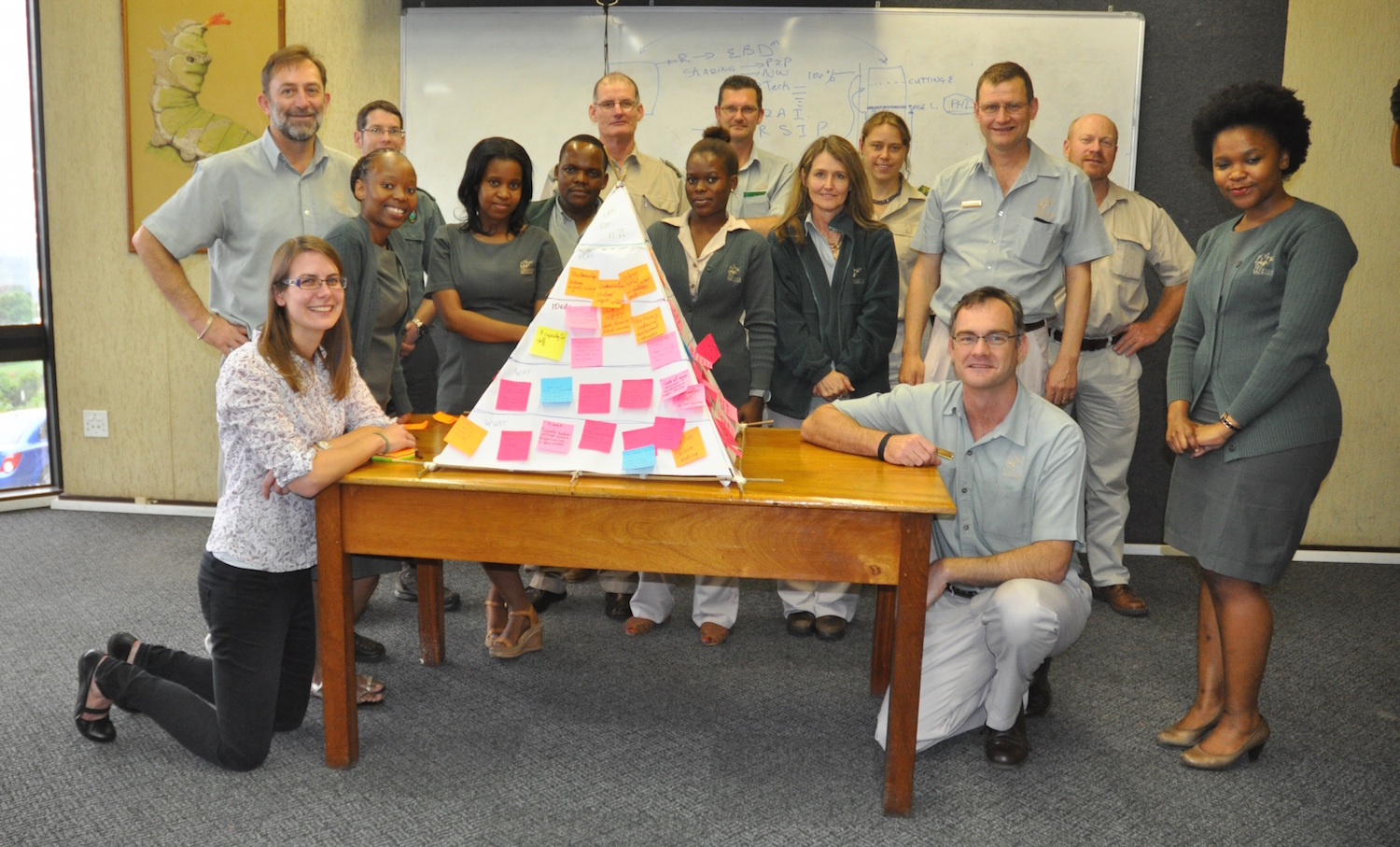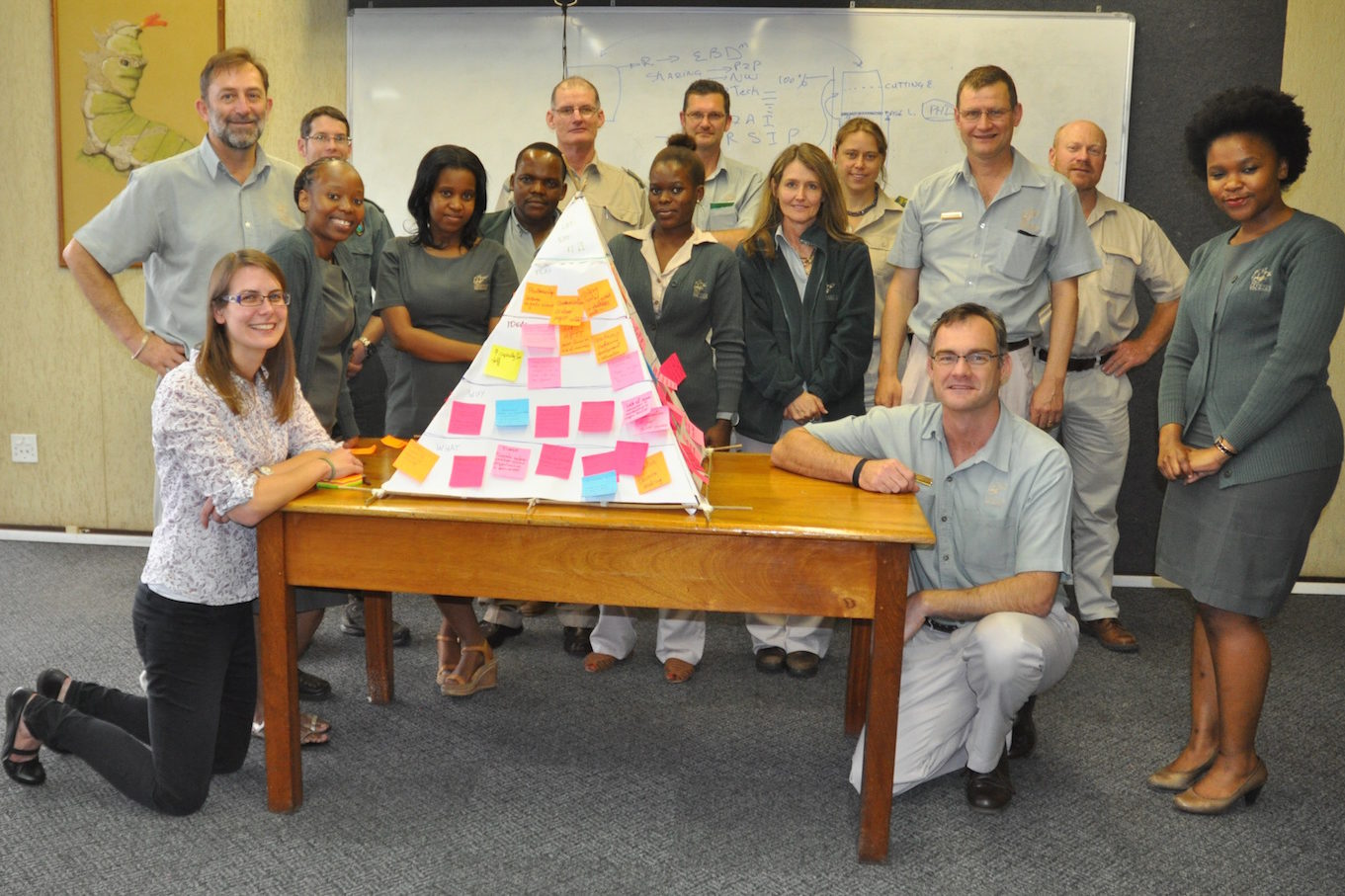Our member in the spotlight this week is Jessica Walsh. Jessica’s paper “The effect of scientific evidence on conservation practitioners’ management decisions” won her the SCBO student publication award for 2015. Below, she tells us more about her research and has some great tips for making your research useful for conservation practitioners.
 SCBO: What has been the highlight of your research to date and what has been the most interesting thing that you have learned?
SCBO: What has been the highlight of your research to date and what has been the most interesting thing that you have learned?JW: If you haven’t read the paper (its open access!), the main conclusion is that practitioners said they were more likely to use effective interventions after reading a summary1 of relevant scientific studies. Practitioners also indicated they would change their use of on average 46% of the management interventions. This is exciting, because it demonstrates that practitioners are willing to change their mind (for at least some things) and that providing summarised evidence may improve management outcomes.
1 This summary was an exert from the Conservation Evidence Synopsis for Bird Conservation about interventions that could be used to reduce predation of birds by invasive species. I encourage researchers and managers to read about Conservation Evidence (www.ConservationEvidence.com) and think about how they can contribute to this initiative and/or use it to inform their management decisions.
In what format do you think scientific information can be best used for decision-making for management?
Based on the principles of evidence-based conservation, scientific findings should be systematically collated and synthesised, then integrated with other relevant information. My research suggests that best practice guidelines and scientific advisors may be the most useful information sources for practitioners. But it is important that scientific research is communicated through a diversity of communication channels, because some practitioners love reading papers (though often in their spare time) and want to have all the scientific detail. Others prefer to have the information distilled into practical guidelines or advice on what to implement on the ground.
Having said all this, at the simplest level, I don’t think you can beat formal and informal conversations between practitioners and researchers, especially those that result in strong relationships, mutual understanding and trust, and long term collaborations.

What piece of advice do you have for other students in the region about how to make their research relevant to conservation?
Get out there and talk to practitioners! This could include policy makers, managers or scientists within management agencies and NGOS! Focus on these five pointers:
- Find out what questions they want answered and try to work that into your research proposal
- Ask them to co-supervise your projects, or at least ask for their input at all stages of the project (and acknowledge their contribution fairly)
- Learn about their interests, priority problems and decision making processes, so you can tailor the content, format and timing of your recommendations to maximise the influence of your research on their decisions
- Present your research to practitioners who could benefit from your research, and if nothing else, provide them with a one-page plain English summary of your results.
- Understand that they work on different time scales, with different incentives and pressures. Try to produce the deliverables as promised and don’t waste their time, as they are very busy people.
Where do you see yourself going next? What’s your dream job?
My childhood dream job was to save tigers in Sumatra and work with turtles on a far-away beach in South America. Obviously, this was not realistic nor the most efficient way to make a difference! I think that as a knowledge broker, scientific advisor or a professional within a boundary organisation, I could have a much bigger impact on conservation. I could still contribute to applied research while getting my hands dirty (or wet) in on-ground management. As these careers become better recognised and supported by the conservation community, hopefully the thin tightropes that currently exist between science and practice will strengthen into solid linking bridges.
Thanks Jessica! If you know someone who should be featured in our member spotlight, or have questions to ask, please get in touch!

